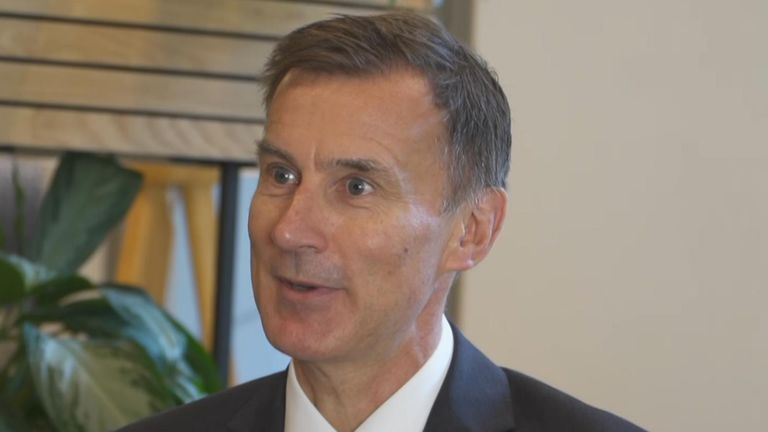Pension reforms could improve financial outcomes in decades – but there’s no feel good factor any time soon
There are many areas where the British economy struggles to compete with its counterparts, but in one sector it is up there with the best in the world: finance.
And when it comes to finance, there is perhaps one event above all others which are developed to celebrating the City of London: the Mansion House banquet in the middle of summer.
This is when the great and good of the square mile mingle with some of the policymakers, central bankers and regulators discussing the issues of the day.
There have been plenty of controversies in the past.
A few years ago the event was gatecrashed by a Greenpeace protestor who was manhandled quite roughly out of the event by the then City minister Mark Field.
The banquet was occasionally a place of tension during the financial crisis, when questions raged about the conduct of the banking system and, for that matter, their overseers in the UK authorities.
And given there are questions growing about the UK’s economic policies – the Bank of England‘s in the face of a cost of living crisis and the government’s plans in the face of major green investments by the US – this is relatively safe territory for the chancellor.
He and the prime minister like the City of London – they believe it is part of the answer to how the UK economy can thrive in the coming years. They see it as an answer to their problems rather than a problem in and of itself.
So it’s perhaps fitting that Jeremy Hunt has chosen this as the forum to announce some quite technical but also quite important changes to the way the pensions system works.
How will UK pensions change?
In brief, the plan is to encourage UK pension funds to put a bit more of their money into private companies.
At the moment only about a percentage point or so of pension funds’ money (and we’re talking here about the defined contribution schemes most people are now members of) goes into private, unlisted funds.
The vast, vast majority is instead invested in government bonds and in funds that shadow share prices in the UK and around the world.
By contrast, pension funds in Canada, Australia and Japan put far more of their money into private companies; indeed there are many UK private companies which have big stakes from overseas pension funds.
The question is: why not UK pension funds? Part of the explanation comes down to various regulations which deter funds from anything but the very safest and cheapest investments.
The government’s argument is that by encouraging pension funds to put more of their cash into private firms, which often tend to see faster growth than unlisted firms, that should benefit those who have their money in UK pensions.
They think it could amount to an average increase in pensions (by the time you retire) of around £1,000 a year – though much of that depends on the future performance of these funds.
Read more:
Severe money market shift signals worse to come for finances
UK now the only G7 country with rising inflation
Average five-year mortgage rates above 6%
There are some question marks over the policy. For an illustration of one of them, consider a certain private company which seems to fulfil the government’s criteria: it’s private, it’s unlisted, and its main owner is a Canadian pension fund. That company is Thames Water.
Some would say that by encouraging pension funds to invest in private equity and unlisted firms – many of which don’t have the same scrutiny as those on UK stock markets – pension funds may be taking on more risk than at present.
The Canadian pensioners with much of their money invested in Thames Water may have mixed feelings about the regulations allowing their funds to put their cash there. That being said, the second biggest owner of Thames is a UK pension fund – the Universities Superannuation Scheme.
But the deeper issue is that while these changes to financial regulation could well improve outcomes in the following decades (they’re slow moving shifts in ownership that won’t have fully materialised until 2030) the government faces a more immediate set of crises.
Click to subscribe to The Ian King Business Podcast wherever you get your podcasts
The cost of living burden is falling heavily right now. Its popularity is flagging. And the room for a pre-election giveaway is diminishing with every week.
The chancellor signalled in his speech that fighting inflation will come before any plans for a tax cut. In other words, none of the above will help improve the feel good factor any time soon.
For all the latest business News Click Here




